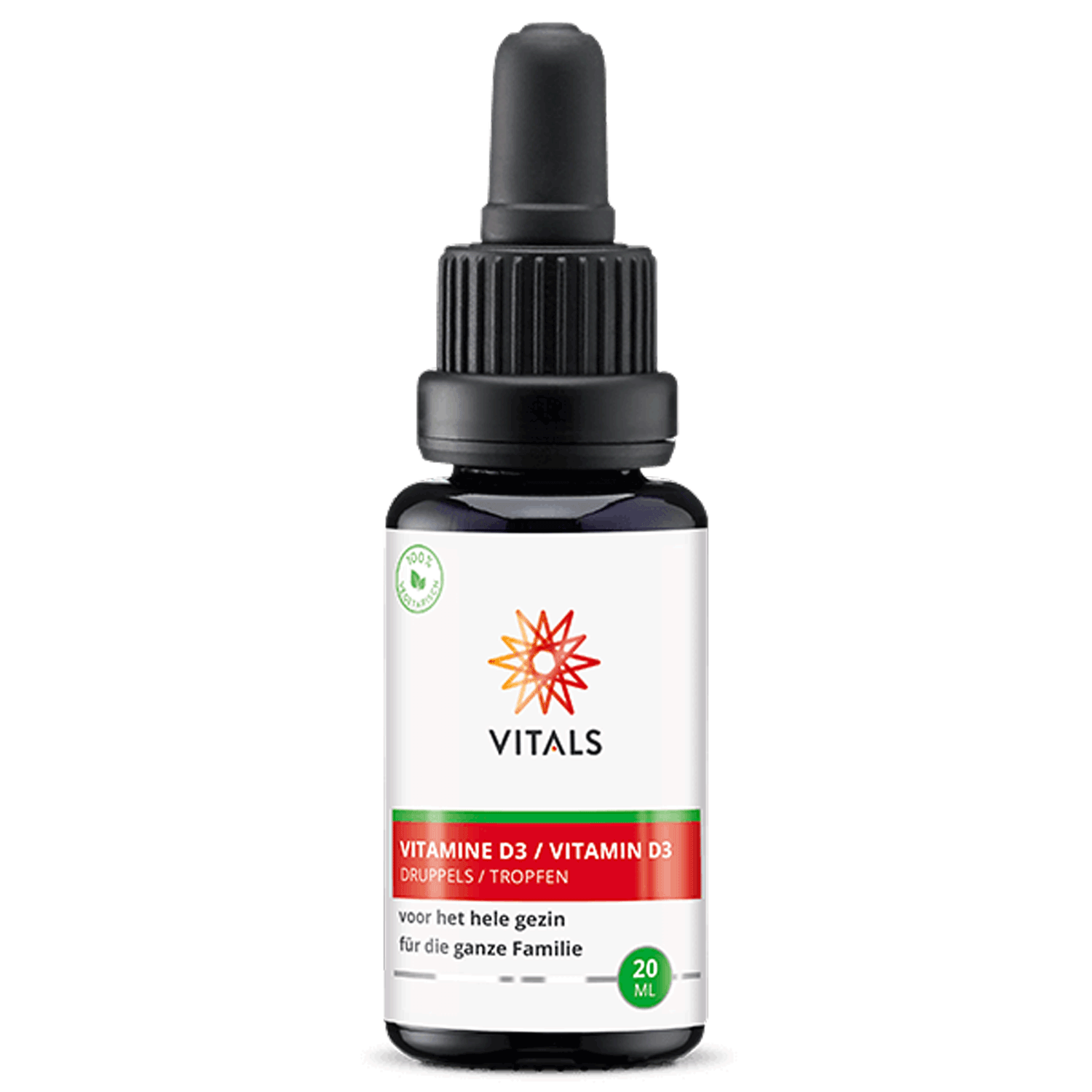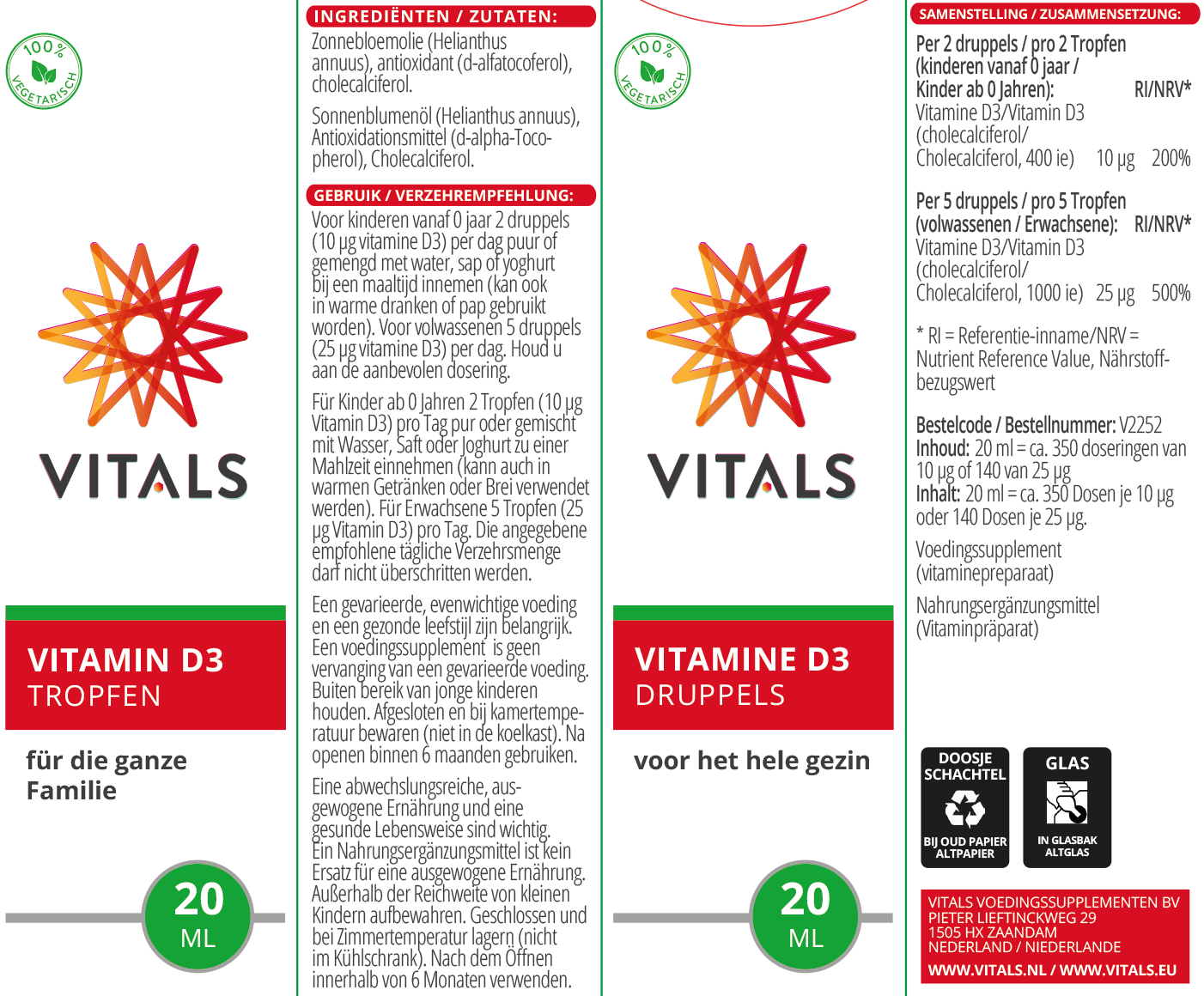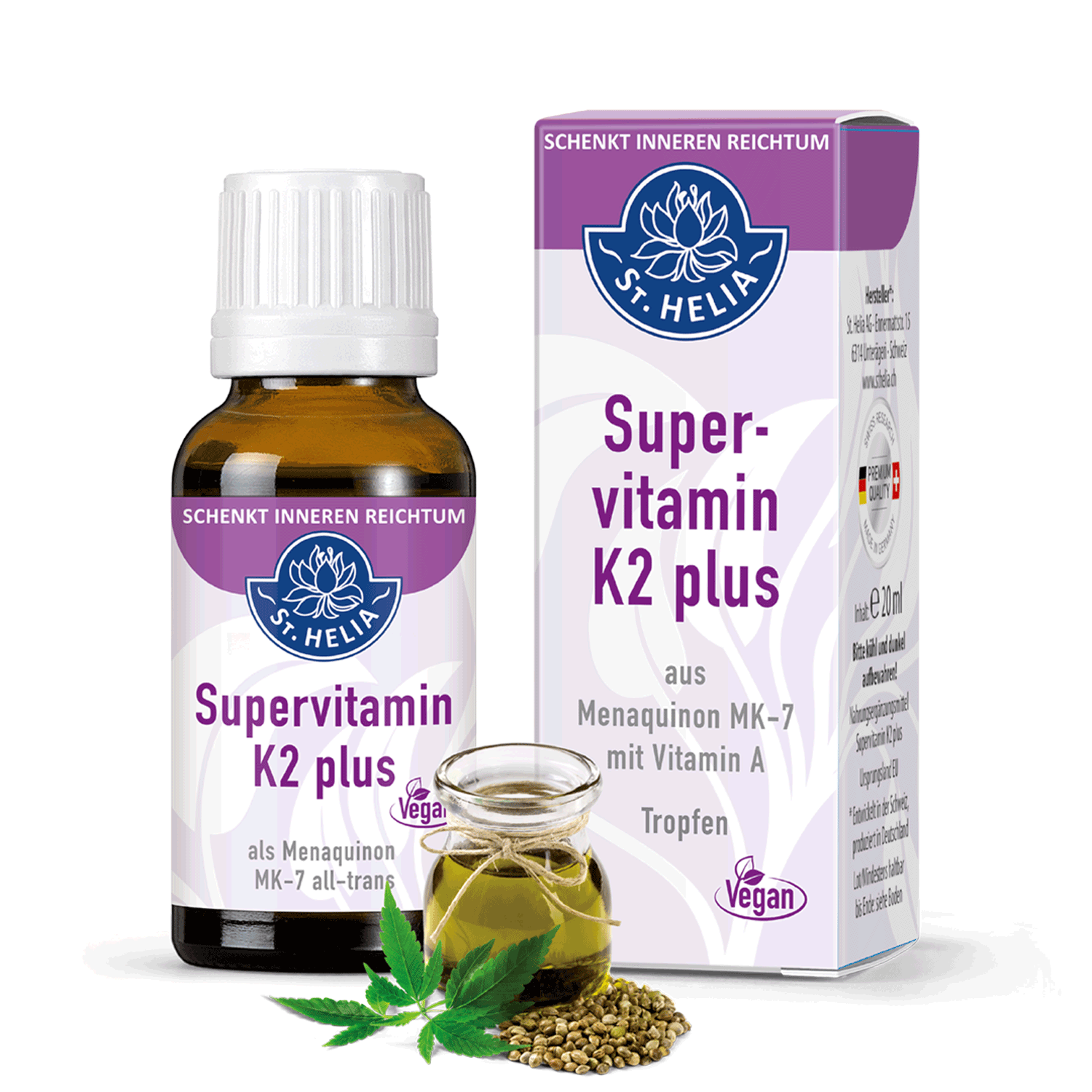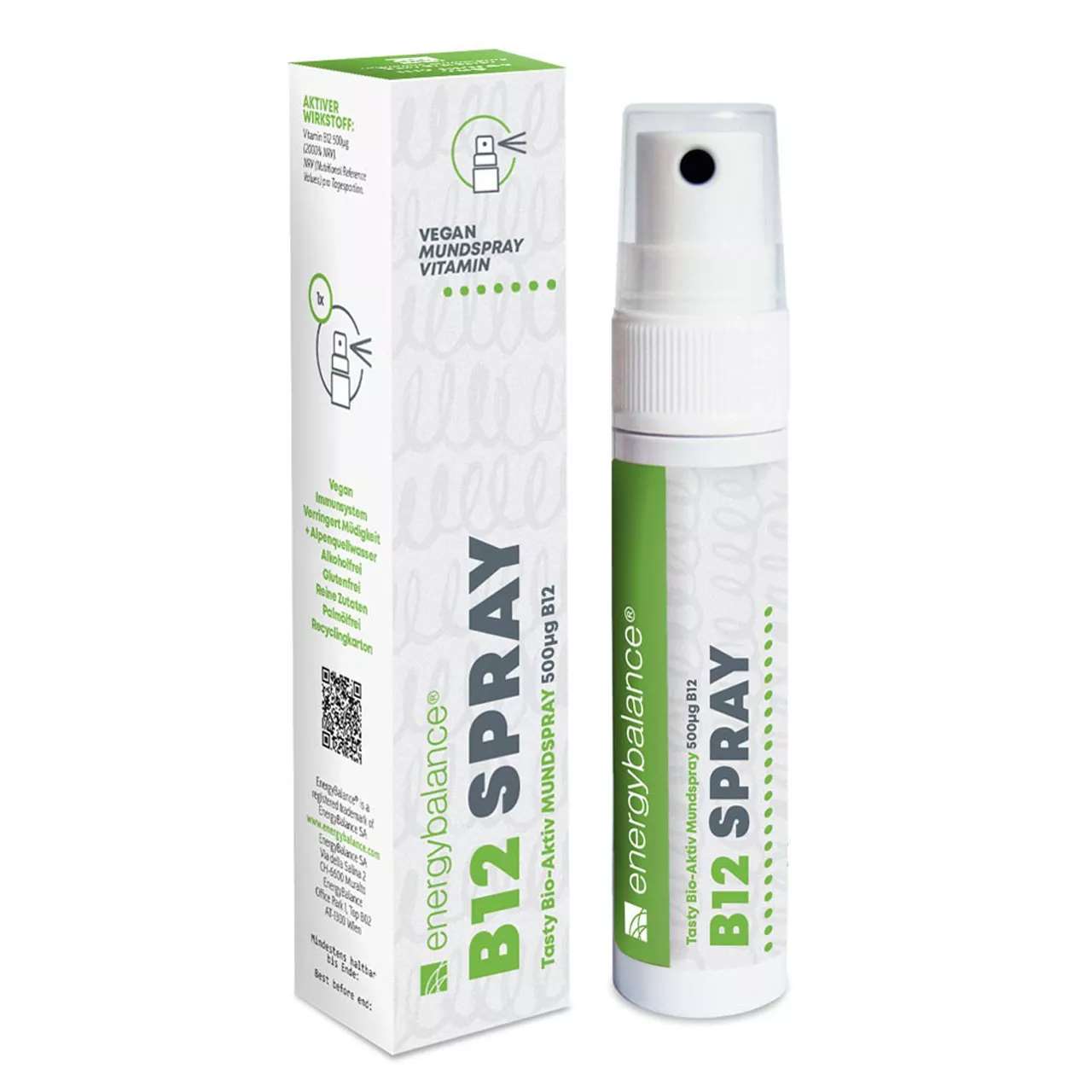Vitamin D3 200 IU, 700 drops

- Ideal for people with swallowing difficulties
- Very economical - lasts up to 2 years
- Very good bioavailability due to carrier oils
| Quantity | Unit price | Base price |
|---|---|---|
| To 1 |
€16.90
|
€845.00 / 1 Liter |
| To 4 |
€16.10
|
€805.00 / 1 Liter |
| From 5 |
€15.20
|
€760.00 / 1 Liter |
Available in 2 days, delivery time 1-4 days
Lower doses per drop - easier for children too!
In the orthomolecular world, the importance of high doses of vitamin D has been recognised for some time. Over time, national and European government institutions have also been convinced by a flood of clear research results. The recommended daily doses and maximum permitted doses continue to increase.
The product contains around 700 drops, each containing 5 µg (200 IU) of vitamin D3 (cholecalciferol from sheep's wool fat). This corresponds to 350 doses of 10 µg for infants and children and 140 doses of 25 µg for adults. The practical pipette allows for easy and precise dosing. Vitamin D3 in droplet form is perfect because it allows for different dosages. It is therefore suitable for the whole family, including small children and people who have problems swallowing capsules. It is also easy to adjust the dose of vitamin D3 according to the time of year, if necessary.
The effect of vitamin D3 is most pronounced.
The most common forms of vitamin D (calciferol) are vitamin D2 (ergocalciferol) and vitamin D3 (cholecalciferol). Ergocalciferol is of plant origin, while cholecalciferol comes from animal sources. The latter is also produced by the human body under UV light, such as sunlight, in the skin (hence the name "sun vitamin"). In the liver, these forms of vitamin D are converted to calcidiol (25-hydroxyvitamin D), a metabolite. In the kidneys and in other cells and tissues, calcidiol is converted into the biologically active hormone calcitriol (1,25-dihydroxyvitamin D) as required. As far as supplementation is concerned, however, it is important to note that vitamin D3 appears to be more effective than vitamin D2 in increasing calcidiol and ultimately calcitriol in the blood in most cases.
Vitamin D requirements
Although the skin can produce vitamin D, this does not work properly for many Europeans. It is necessary to spend at least 15 to 30 minutes a day outdoors between 11am and 3pm. While many people have a job that requires them to be indoors at these times. Also, the weather is often not favourable, so if people go out in the sun with uncovered skin, their skin will soon be rubbed with sun cream. In addition, the sun's power is not sufficient between November and May. As a result, vitamin D production and intake through food is insufficient for most people (especially during these months). Many vitamin D experts also believe that the optimum vitamin D level is higher than the current recommendations. In their view, everyone's calcidiol level should be at least 75 nanomoles per litre of blood (nmol/l), while the Dutch Health Council, for example, considers a level of 30 nmol/l (or 50 nmol/l from the age of 70) to be sufficient. The reference values for nutrition and the recommendations for vitamin D supplements are based on this.
The effect of vitamin D in the organism
In recent decades, knowledge about the role and importance of vitamin D in the human body has increased considerably. Researchers have discovered receptors for vitamin D in over 30 different tissues and organs, including immune cells, muscles and bones. This means that vitamin D has a variety of effects and promotes health in many different ways. Above all, it is known that vitamin D is good for teeth and bones. Vitamin D is necessary for the absorption of calcium and phosphorus and for maintaining normal blood levels of these two nutrients. These minerals are in turn necessary for the mineralisation of teeth and bones. Vitamin D is also beneficial for the muscles, as a vitamin D receptor is also present in muscle tissue. Its activation increases protein production in the muscles, which is essential for their function. Vitamin D also plays a role in the cell division process and in the formation of new cells and tissues. Vitamin D also has an immunomodulatory effect, i.e. it regulates processes within the immune system. Vitamin D receptors are found on T helper cells, a type of white blood cell that plays a decisive role in certain immunological processes. In this way, vitamin D plays a multifaceted role in our complex immune system.
Nutritive properties
- Vitamin D contributes to the normal absorption/utilisation of calcium and phosphorus.
- Vitamin D contributes to normal blood calcium levels.
- Vitamin D contributes to the maintenance of normal bones.
- Vitamin D contributes to the maintenance of normal muscle function.
- Vitamin D contributes to the maintenance of normal teeth.
- Vitamin D contributes to the normal function of the immune system. Vitamin D has a function in cell division.
Nutritional declaration
| Micronutrients | per daily portion 5 drops |
| Vitamin D | 25 µg (500 %*) |
*Reference value according to Regulation (EU) No. 1169/2011
Ingredients
Sunflower oil (Helianthus annuus), antioxidant (d-alpha-tocopherol), cholecalciferol.
Recommended dosage
For children from 0 years of age, take 2 drops (10 μg vitamin D3) per day pure or mixed with water, juice or yoghurt with a meal (can also be used in warm drinks or porridge). For adults 5 drops (25 μg vitamin D3) per day.
Storage instructions
Store in a cool, dry place away from light (not in the refrigerator). Use within 6 months after opening.
Legal information
The recommended daily intake must not be exceeded. Food supplements are no substitute for a balanced and varied diet and a healthy lifestyle. Store out of the reach of small children.
| Administration: | As a liquid solution with a dosing pipette. |
|---|---|
| Application: | Immune system, Bones & Joints, Sports, Cell Protection |
| Product Type: | Dietary supplements |
| Quality: | Gluten-free, Lactose-free, Vegan |
Welches Gewicht bzw. Volumen hat ein Tropfen?
Für Öle und wässrige Lösungen in Tropfflaschen oder welchen mit Pipetten sind Tropfen eine beliebte und praktische Mengenangabe. Leider sind sie aber faktisch sehr ungenau.
Wer es genau wissen möchte oder muss zur Dosierung und Planung seiner Medikamente oder Nahrungsergänzungen:
Ein Tropfen Wasser hat ungefähr 0,05 ml oder 0,05 g bzw. 50 mg.
Öl hat eine andere Dichte und ein anderes Abtropfverhalten als Wasser. Deshalb:
Ein Tropfen Öl hat ungefähr 0,04 ml oder 0,35 g bzw. 35 mg.
Vitals, unsere neue Marke ab 2025
Wir sind ständig auf der Suche nach Marken, die unsere Ideale repräsentieren: Höchste Qualität, konsequentes Weglassen überflüssiger Zusatzstoffe wie Titandioxid oder Schweinegelatine, sehr gute Preis-Leistungs-Verhältnis und absolute Zuverlässigkeit bei der Lieferung an uns und damit auch an die Kunden.
Das ist sehr schwer, weil solche Firmen enorm selten sind, unter der Masse an Herstellern von Nahrungsergänzungsmitteln, die inzwischen auf dem Markt sind. Aber wir haben es wieder geschafft, fündig zu werden, mit Vitals aus den Niederlanden!
Anschrift des Herstellers: Vitals Voedingssupplementen BV, Pieter Lieftinckweg 29, 1505 HX Zaandam, Niederlande. E-Mail: kundendienst@vitals.eu.

Login







